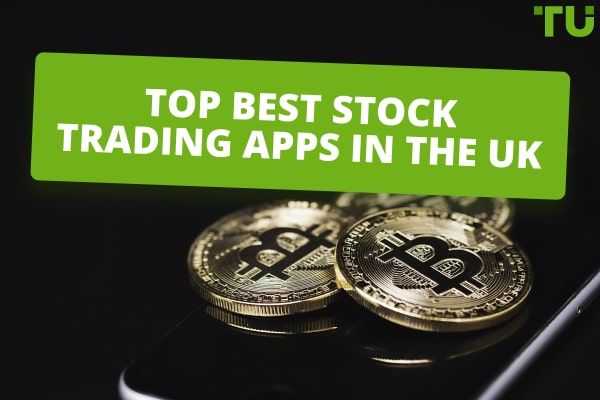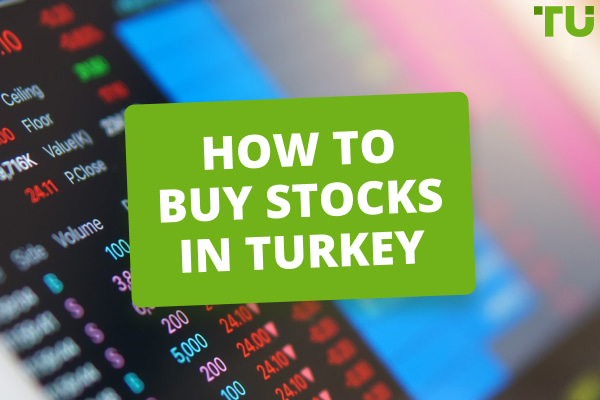How To Buy Stocks In Spain
How to buy stocks in Spain:
-
Choose a broker. Search for a reliable online broker that operates in Spain
-
Open an account. Sign up and complete the necessary documentation to establish your trading account
-
Add funds. Deposit money into your trading account using your preferred payment method
-
Trade stocks. Research, select, and purchase your desired stocks through the platform
This article is a comprehensive guide for anyone buying stocks in Spain. Whether you're a resident or an international investor, we'll walk you through the entire process, from opening an online brokerage account to executing your first trade.
Additionally, we'll explore how to sell shares, the tax implications, and other key considerations to help you make informed investment decisions in the Spanish stock market.
Want to buy stocks? Open an account with RoboForex!How to buy stocks online in a few easy steps
1. Choose an online stock broker
To begin investing in stocks, you need to select an online stock broker. Look for a broker that offers a user-friendly interface, low fees, good customer service, and a wide range of investment options. It is essential to ensure that the broker is regulated and operates within your country's jurisdiction.
For beginners, brokerages with extra benefits such as social trading can be invaluable as they offer opportunities to learn from experienced traders, as well as study best strategies. Additionally, access to comprehensive educational resources, fractional shares trading, and a diverse range of ETF investment options can further empower beginners in making well-informed and diversified investment decisions.
2. Sign up for an account
Once you have chosen a suitable broker, you'll need to sign up for an account. The registration process typically involves providing your personal information, which may include:
Your full name
Address and contact details
Date of birth
Social Security number (or equivalent)
Proof of identification (such as a driver's license or passport)
Employment and material status information is optional
Keep in mind that some brokers might require mandatory verification of your identity and documents.
3. Make your first deposit
To pay for the stocks you want to purchase, you'll need to deposit funds into your brokerage account. Most brokerages offer various funding options, such as bank transfers, credit/debit cards, or wire transfers.
Bank Transfers: Usually free or low-cost, but may take a few days to clear
Credit/Debit Cards: Instant, but may involve additional fees
Wire Transfers Instant, but may involve additional fees
How much money should I deposit for the first time? TU experts recommend starting with a small amount to understand the stock market and gain practical experience.
4. Choose the stocks you want to buy
With your account funded, it's time to choose the stocks you want to buy. You can use your brokerage's research tools or other financial websites to gather information about potential investments. Take into consideration factors like your budget, risk tolerance, and long-term investment goals when making your decisions.
If you are inclined towards long-term investing, it is essential to focus on conservative trading strategies, prioritize portfolio diversification, and thoroughly understand the businesses of the companies you invest in. On the other hand, if you prefer active trading, consider learning technical analysis or other techniques to make informed decisions and navigate the dynamic nature of the stock market effectively.
5. Place your orders to buy stock
There are different types of orders you should understand:
Market order executes the buy order at the current market price. It prioritizes execution speed over price, ensuring immediate execution
Market order use case: Investors who want to enter or exit a position quickly, especially in highly liquid stocks.
Limit order sets a specific price at which the investor is willing to buy or sell a stock. It allows investors to control the price at which the trade will execute, offering price protection
Limit order use case: Traders who want to buy or sell at a specific price and are willing to wait for the market to reach that price.
Stop order (stop-loss order) executes the order when the stock reaches a specified price. Stop orders are used to limit potential losses by triggering a sale if the stock's price moves unfavorably
Stop order use case: Traders who want to protect their investments from significant price declines.
6. Monitor your investments
The stock market can be volatile, and the value of your holdings may fluctuate. Stay informed about the companies you've invested in and keep an eye on market trends. Remember that investing is a long-term endeavor, and it's essential to review and adjust your portfolio periodically based on your financial goals and risk tolerance.
By following these steps and staying informed, you can start your journey into the world of online stock investing. Remember that investing involves risks, and it's crucial to do thorough research and seek professional advice if needed. Happy investing!
How do I sell my stocks in Spain?
Here’s how you can sell your stocks in Spain:
1. Eligibility for selling stocks
In Spain, both individuals and legal entities can sell stocks. However, the right to sell is influenced by the shareholder's status—whether they are a minority or majority shareholder—and the proportion of shares they own. Understanding your eligibility is the first step in the selling process and may require consultation with legal experts familiar with Spanish corporate law.
2. Requirement for foreign buyers
Foreign buyers must possess a Spanish tax identification number (NIE) to engage in any financial or social activities, including buying shares in Spain. This is a mandatory requirement and is crucial for the legal completion of the share transfer.
3. Formalizing the transfer
The transfer of shares is a formal process that requires a deed of sale. This deed must be signed in the presence of a public notary in Spain. Both the buyer and seller should be represented by their legal representatives, and the buyer must present various documents, such as identity documents and a declaration of foreign investment.
4. Tax-free transfers within the company
If shares are sold to other shareholders within the same company, the transfer is generally tax-free, as per Law 1/2010, Article 107. This provides an incentive for internal transfers but requires the company's directors to approve the sale if it involves third parties.
5. Capital gains tax
Spain imposes a capital gains tax on the sale of shares. For individuals, the tax rates range from 19% to 23%. For legal entities, the applicable tax is the corporate tax. Non-residents are generally taxed at a rate of 24%, although exceptions apply for residents of the EU, Iceland, and Norway.
6. Consultation with experts
Given the legal and financial complexities involved in selling shares in Spain, it's highly advisable to consult with specialists in Spanish company formation. They can provide legal assistance and advice tailored to your specific situation, helping you navigate the regulatory landscape effectively.
Best stock brokers in Spain
What are the benefits of buying stocks in Spain?
Investing in the Spanish stock market offers a multitude of benefits that can enhance your financial portfolio in various ways. Here are some key advantages:
Diversification
One of the primary benefits of investing in Spanish stocks and the stock market fact is the opportunity for diversification. Spain boasts a diverse economic landscape with a range of industries, from tourism and hospitality to renewable energy and technology. By investing in companies across these sectors, you can spread your risk and potentially increase your chances of earning a return on your investment. Diversification is a cornerstone of a well-balanced portfolio, and the Spanish market provides ample opportunities to achieve this.
Exposure to emerging markets
Spain serves as a significant gateway to Latin American markets, offering a unique blend of developed and emerging market dynamics. This is particularly beneficial for investors looking to diversify their portfolios further by tapping into the growth potential of emerging economies. Spanish companies often have strong ties to Latin America, and by investing in these companies, you can indirectly gain exposure to these burgeoning markets.
Eurozone stability
Spain is a member of the Eurozone, which brings with it a level of economic and monetary stability. The Euro is one of the world's most stable currencies, and this stability can be a significant advantage for investors wary of currency risk. Investing in a stable currency zone can protect your investments from the extreme volatilities often seen in other markets, making it a safer bet for long-term investment strategies.
Dividend income
Lastly, many Spanish companies are known for their robust dividend-paying policies. Dividends provide an ongoing income stream for investors in addition to any capital gains from the stock's appreciation. This dual-earning potential makes Spanish stocks an attractive option for those looking to generate both immediate income and long-term growth.
Is it safe to buy stocks online?
Yes, in general, stock investing is safe, but you should learn some basic safe investing rules that will help protect your money.
Research and select a well-established, reputable online brokerage platform with a track record of security and customer satisfaction
Buy stocks using a secure internet connection, preferably your private home network, to reduce the risk of unauthorized access or data interception
Create strong and unique passwords for your brokerage account, incorporating a combination of letters, numbers, and special characters
Enable 2FA whenever possible. This adds an extra layer of security by requiring a second form of verification, such as a code sent to your mobile device, before accessing your account
When funding your brokerage account or making transactions, use secure payment methods such as bank transfers or credit cards. Avoid sharing credit card details directly with third parties
Be cautious about sharing unnecessary personal information online, especially on social media platforms, to minimize the risk of identity theft or fraud
Keep a close eye on your brokerage account's activity. Regularly review statements and transaction history for any unauthorized or suspicious transactions
Educate yourself about common stock frauds and phishing attempts related to stock trading
Can Spaniards trade stocks with international brokers?
Yes, Spaniards can trade stocks with international brokers, but there are some important considerations. Regulations, tax implications, and trading costs can vary significantly when dealing with international platforms. It's crucial to cooperate with the best stock trading platform like eToro, which adheres to international standards and regulations.
What is the minimum stock investment in Spain?
Investing in the Spanish stock market doesn't necessarily require a large budget. Penny stocks, costing less than one or two euros, offer an affordable entry point. These stocks often belong to startups with high growth potential. However, they come with increased risk due to less regulatory scrutiny and the potential for poor management. Therefore, thorough research is essential before investing in penny stocks.
Can I trade fractional shares?
Fractional shares are essentially portions of a single full share of a company. Instead of buying an entire share, investors can purchase a fraction, which allows them to own a piece of a company without committing to the full share price. This is particularly beneficial for those who want to invest in high-priced stocks but may not have the capital to buy whole shares. Now, let's delve into how this works in Spain and why it's advantageous for investors.
In Spain, trading fractional shares is entirely possible, but the key is to select a brokerage that offers this specific service. Platforms like eToro, the best stock broker for fractional shares, have made it easier than ever to invest in fractional shares, thereby democratizing access to investment opportunities that might have been out of reach for average investors. You can also use local stock brokers which allow fractional shares trading. For instance, if a share of a popular tech company is priced at €1,000, you could still invest as little as €10 to own 1% of that share. This opens up a world of possibilities, especially for novice investors or those with limited capital. You can use the stock alerts app for better trading stocks.
The ability to buy fractional shares enables a more diversified portfolio. Instead of putting a large sum into a single share, you can spread that amount across multiple companies or sectors. This diversification can reduce your investment risk and offer a more balanced portfolio, which is often the cornerstone of a sound investment strategy.
Are capital gains or dividends taxable in Spain?
In Spain, capital gains tax applies to all taxpayers who sell an asset for a profit. For residents, the rate starts at 19% for the first €6,000 and increases progressively. Non-residents are taxed at a flat rate of 24%, with some exceptions for EU, Iceland, and Norway residents. Dividends and other earnings from company holdings are subject to Personal Income Tax (PIT) in Spain. The tax rates are tiered based on the amount of income generated. For the first €6,000 of income, a 19% tax rate applies. Income between €6,000 and €50,000 is taxed at 21%. For income ranging from €50,000 to €200,000, the rate is 23%. Income between €200,000 and €300,000 is taxed at 27%, and any income above €300,000 is taxed at 28%.
For non-residents in Spain without a Permanent Establishment (PE), dividend income is subject to a flat Spanish withholding tax (WHT) of 19%. However, Double Taxation Treaties (DTTs) may offer lower rates.
FAQs
How to invest in stocks from Spain?
To invest in stocks from Spain, one effective method is to purchase ETFs that closely track the performance of the Spanish stock market. These ETFs can be found on various trading platforms and provide broad exposure to the market.
Can I invest in the US stock market from Spain?
Yes, you can invest in the US stock market from Spain. It's vital to select a reputable stock broker that offers access to US markets to ensure a smooth and secure trading experience.
What stock market is used in Spain?
Spain's main stock market is the Madrid Stock Exchange, also recognized as Bolsa de Madrid. It's the primary platform for trading equities and other securities in Spain.
How do I buy European stocks?
To purchase European stocks, investors can opt for American Depository Receipts (ADRs), European Depository Receipts (EDRs), or Global Depository Receipts (GDRs). Ensure you use a trustworthy trading app or platform that provides access to these financial instruments.
Team that worked on the article
Alamin Morshed is a contributor at Traders Union. He specializes in writing articles for businesses who want to improve their Google search rankings to compete with their competition.
Dr. BJ Johnson is a PhD in English Language and an editor with over 15 years of experience. He earned his degree in English Language in the U.S and the UK. In 2020, Dr. Johnson joined the Traders Union team. Since then, he has created over 100 exclusive articles and edited over 300 articles of other authors.
Mirjan Hipolito is a journalist and news editor at Traders Union. She is an expert crypto writer with five years of experience in the financial markets. Her specialties are daily market news, price predictions, and Initial Coin Offerings (ICO).











